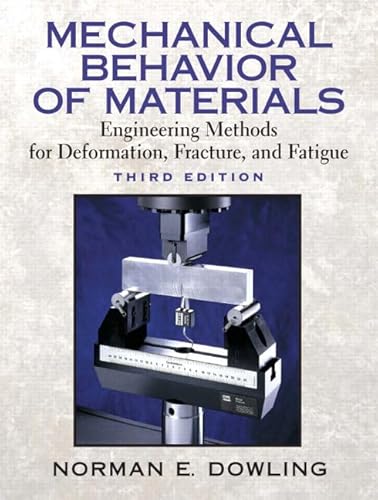This respected handbook introduces the entire spectrum of mechanical behavior of materials, emphasizing practical engineering methods for testing structural materials to obtain their properties, and predicting their strength and life when used for machines, vehicles, and structures. Features expanded discussions ofsafety factors, stress and strain, bending and torsion tests, unknown fiber fraction, 3-D stresses, and modified-Mohr and Coulomb-Mohr criteria. Also addresses maximum shear and octahedral shear criteria, load factor design, fatigue limits, notch sensitivity, R-ratio effects, mean stress relaxation, cyclic bending, mean stresses, and time-temperature parameters. Coverage of fracture mechanics allows readers to analyze the effect of cracks on strength and life without requiring advanced mathematics. Employs actual laboratory data in illustrations, examples, and pro
Norman E. Dowling earned his B.S. in civil engineering (structures) from Clemson University in Clemson, S.C., and his M.S. and Ph.D. in theoretical and applied mechanics from the University of Illinois in Urbana.
An ASTM International member since 1972, Dowling serves on a number of E08 subcommittees and has recently been member-at-large of the E08 Executive Subcommittee. Professionally he has worked in the areas of fatigue, fracture, and deformation of engineering materials and components. Specific topics of interest include life prediction for irregular loading histories, plasticity effects on notches and in crack growth, and standard test methods for low cycle fatigue and for fatigue crack growth. He has also consulted on applications to engineering design, troubleshooting, and failure analysis.
In addition to ASTM International, Dowling is a member of the Fatigue Design and Evaluation Committee of the Society of Automotive Engineers, ASM International, and Sigma Xi.
